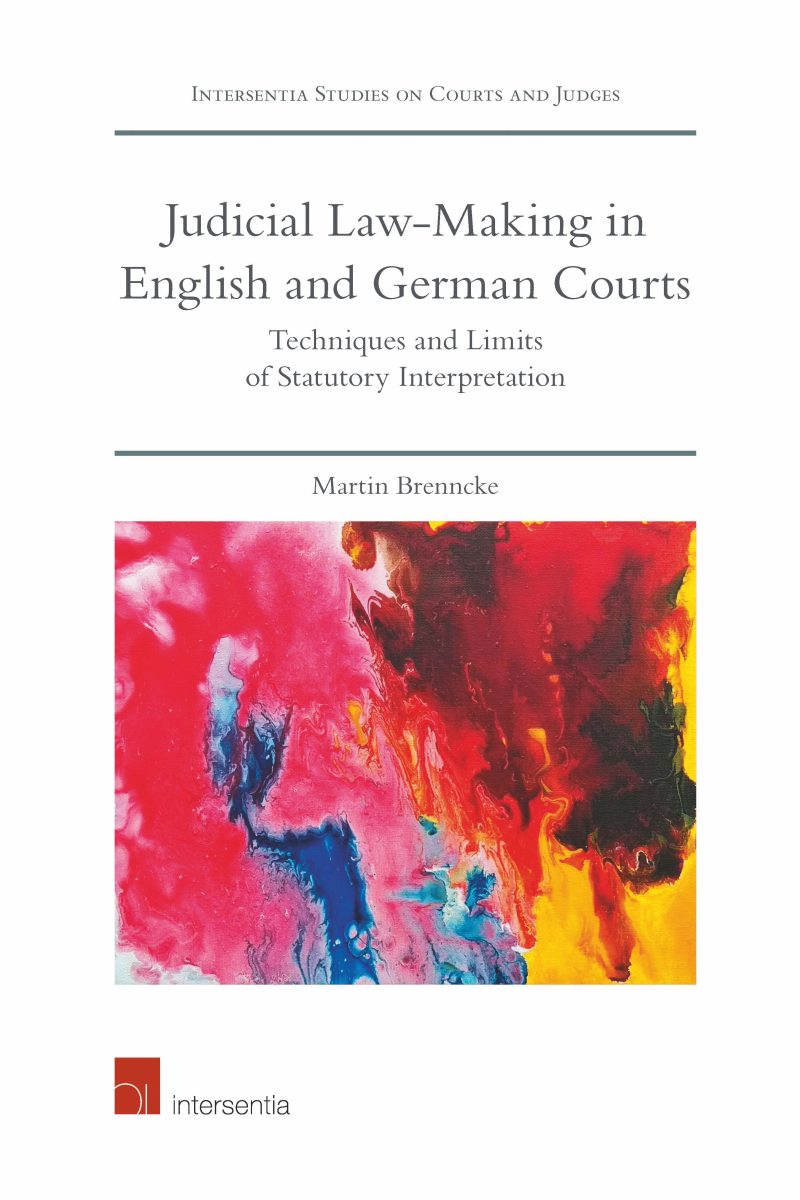 maestro
mastercard
visa
maestro
mastercard
visa

Judicial Law-Making in English and German Courts
Techniques and Limits of Statutory Interpretation

"This book is a valuable study of how two jurisdictions approach the task of statutory interpretation in a complex and multivalent constitutional environment. It is the product of considerable scholarship across the two jurisdictions and a fine sensitivity to the various factors and different theoretical dimensions which inform the interpretative exercise. The exposition is clear. The argument is forceful. As with all the best works of comparative law, one reads this book and learns as much about one’s own legal system as about the system with which it is compared." – from the Foreword by Philip Sales (Lord Justice of Appeal, England & Wales)
How far do contemporary English and German judges go when they interpret national legislation? Where are the limits of statutory interpretation when they venture outside the constraints of the text?
Judicial Law-making in English and German Courts is concerned with the limits of judicial power in a legal system. It addresses the often neglected relationship between statutory interpretation and constitutional law. It traces the practical implications of constitutional principles by exploring the outer limits of what courts regard themselves as authorised to do in the area of statutory interpretation. The book critically analyses, reconstructs and compares judicial law-making in English and German courts from comparative, methodological and constitutional perspectives. It maps the differences and commonalities in both jurisdictions and then offers explanatory accounts for these differences and similarities based on constitutional, institutional, political, historical, cultural and international factors.
It will be shown that a fundamental unity of statutory interpretation exists in English and German judicial practice in the sphere of rights-consistent and EU-conforming judicial law-making. The constitutional settings and legal cultures in Germany and the UK have converged in both areas of judicial law-making. However, that is not the case for judicial law-making under conventional canons of statutory interpretation, where significant differences in judicial approach to statutory interpretation remain.
Judicial Law-making in English and German Courts is the first monograph in English that compares English and German legal methodology as applied in judicial practice, appealing to those interested in statutory interpretation, comparative law or legal methodology.
| Type of product | Book |
|---|---|
| Format | Hardback |
| EAN / ISSN | 9781780682693 / 9781780687902 |
| Series name | Intersentia Studies On Courts And Judges |
| Weight | 950 g |
| Status | Available |
| Number of pages | xxxiv + 438 p. |
| Access to exercice | No |
| Publisher | Intersentia |
| Language | English |
| Publication Date | Oct 31, 2018 |
| Available on Strada Belgique | No |
| Available on Strada Europe | No |
| Available on Strada Luxembourg | No |
Downloads
- Table of contents and preliminary pages
- Chapter 1. Introduction
Martin Brenncke - Chapter 2. Conventional Canons of Statutory Interpretation
Martin Brenncke - Chapter 3. Rights-Consistent Interpretation
Martin Brenncke - Chapter 4. The European Legal Duty of Conforming Interpretation
Martin Brenncke - Chapter 5. Conclusion
Martin Brenncke